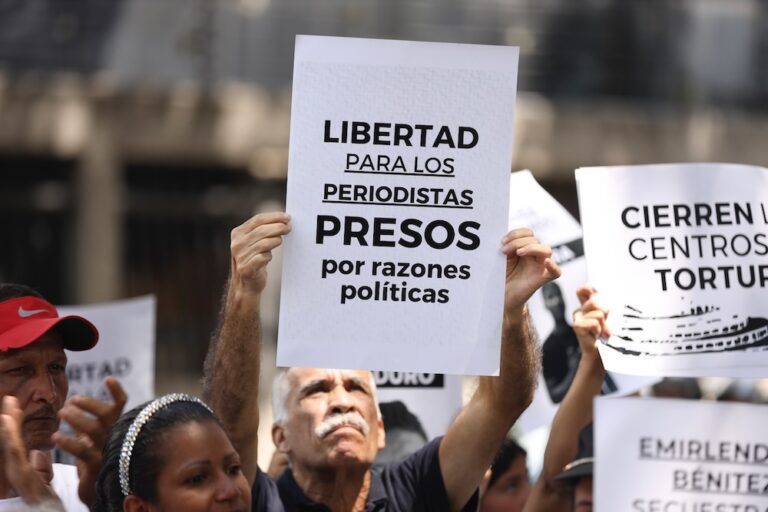David Kaye on why a growing number of governments are putting travel bans on critics to stop them from discussing state repression and corruption.
This statement was originally published on indexoncensorship.org on 22 November 2017.
Governments have arsenals of weapons to censor information. The worst are well-known: detention, torture, extra-judicial (and sometimes court-sanctioned) killing, surveillance. Though governments also have access to less forceful but still insidious tools, such as website blocking and internet filtering, these aim to cut off the flow of information and advocacy at the source.
Another form of censorship gets limited attention, a kind of quiet repression: the travel ban. It’s the Trump travel ban in reverse, where governments prohibit exit rather than entry. They do so not merely to punish the banned but to deny the spread of information about the state of repression and corruption in their home countries.
In recent days I have heard from people around the world subject to such bans. Khadija Ismayilova, a journalist in Azerbaijan who has exposed high-level corruption, has suffered for years under fraudulent legal cases brought against her, including time in prison. The government now forbids her to travel. As she put it last year: “Corrupt officials of Azerbaijan, predators of the press and human rights are still allowed in high-level forums in democracies and able to speak about values, which they destroy in their own – our own country.”
Zunar, a well-known cartoonist who has long pilloried the leaders of Malaysia, has been subject to a travel ban since mid-2016, while also facing sedition charges for the content of his sharply dissenting art. While awaiting his preposterous trial, which could leave him with years in prison, he has missed exhibitions, public forums, high-profile talks. As he told me, the ban directly undermines his ability to network, share ideas, and build financial support.
Ismayilova and Zunar are not alone. India has imposed a travel ban against the coordinator of a civil society coalition in Kashmir because of “anti-India activities” which, the government alleges, are meant to cause youth to resort to violent protest. Turkey has aggressively confiscated passports to target journalists, academics, civil servants, and school teachers. China has barred a women’s human rights defender from travelling outside even her town in Tibet.
Bahrain confiscated the passport of one activist who, upon her return from a Human Rights Council meeting in Geneva, was accused by officials of “false statements” about Bahrain. The United Arab Emirates has held Ahmed Mansoor, a leading human rights defender and blogger and familiar to those in the UN human rights system, incommunicado for nearly this entire year. The government banned him from travelling for years based on his advocacy for democratic reform.
Few governments, apart from Turkey perhaps, can compete with Egypt on this front. I asked Gamal Eid, subject to a travel ban by Egyptian authorities since February of 2016, how it affects his life and work? Eid, one of the leading human rights defenders in the Middle East and the founder of the Arab Network for Human Rights Information (ANHRI), has seen his organisation’s website shut down, public libraries he founded (with human rights award money!) forcibly closed, and his bank accounts frozen.
While Eid is recognised internationally for his commitment to human rights, the government accuses him of raising philanthropic funds for ANHRI “to implement a foreign agenda aimed at inciting public opinion against State institutions and promoting allegations in international forums that freedoms are restricted by the country’s legislative system.” He has been separated from his wife and daughter, who fled Egypt in the face of government threats. The ban forced him to close legal offices in Morocco and Tunisia, where he provided defence to journalists, and he lost his green card to work in the United States. He recognises that his situation does not involve the kind of torture or detention that characterises Egypt’s approach to opposition, but the ban has ruined his ability to make a living and to support human rights not just in Egypt but across the Arab world.
Eid is not alone in his country. He estimates that Egypt has placed approximately 500 of its nationals under a travel ban, about sixteen of whom are human rights activists. One of them is the prominent researcher and activist, Hossam Bahgat, founder of the Egyptian Initiative for Personal Rights, who faces accusations similar to Eid’s.
Travel bans signal weakness, limited confidence in the power of a government’s arguments, perhaps even a public but quiet concession that, “yes indeed, we repress truth in our country”. While not nearly as painful as the physical weapons of censorship, they undermine global knowledge and debate. They exclude activists and journalists from the kind of training that makes their work more rigorous, accurate, and effective. They also interfere in a direct way with every person’s human right to “leave any country, including one’s own,” unless necessary for reasons such as national security or public order.
All governments that care about human rights should not allow the travel ban to continue to be the silent weapon of censorship – and not just for the sake of Khadija, Zunar, and Gamal, but for those who benefit from their critical voices and work.
David Kaye is a Clinical Professor of Law and Director of the International Justice Clinic at the University of California, Irvine, and the UN Special Rapporteur on the Promotion and Protection of the Right to Freedom of Opinion and Expression



